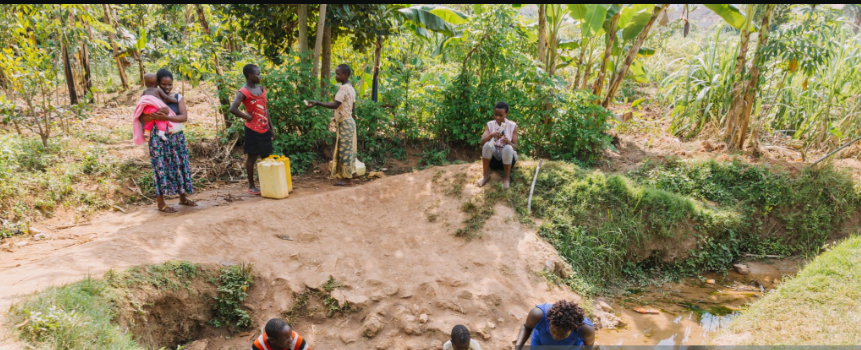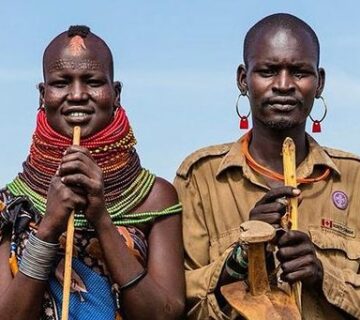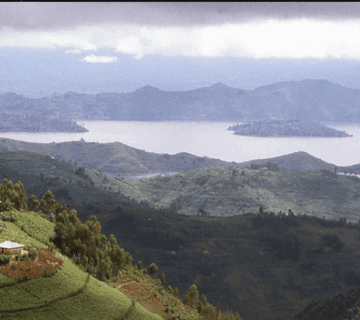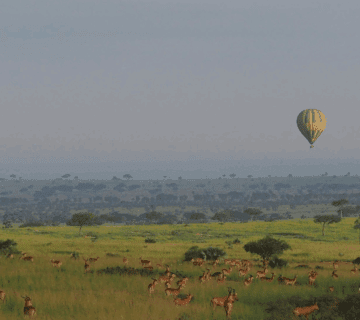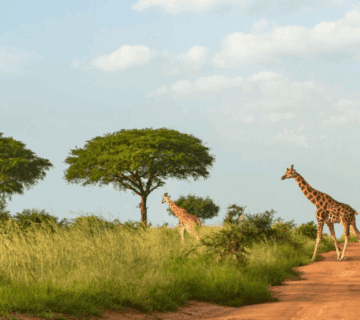Can You Hike Without a Guide in Uganda?
Uganda, famously known as the “Pearl of Africa,” is a hiker’s paradise. With its lush rainforests, towering mountains, vast savannahs, and breathtaking waterfalls, the country offers endless opportunities for adventure. But one question often lingers in the minds of independent travelers: Can you hike without a guide in Uganda?
The answer isn’t a simple yes or no. While some trails allow for solo exploration, others legally require a guide for safety and conservation reasons. Whether you choose to hike without a guide or opt for professional assistance, understanding the risks, regulations, and rewards of independent trekking in Uganda is crucial.
This article explores the possibilities, challenges, and inspiring stories of those who have ventured into Uganda’s wilderness alone—proving that with the right preparation, mindset, and respect for nature, you can indeed hike without a guide in some of Uganda’s most stunning landscapes.
The Allure of Independent Hiking in Uganda
There’s something undeniably liberating about setting off on a trail with nothing but your backpack, a map, and a sense of adventure. Independent hiking allows you to move at your own pace, take detours, and connect deeply with nature. In Uganda, where tourism is still developing in many areas, going solo can offer a more raw and unfiltered experience.
Where Can You Hike Without a Guide?
Not all trails in Uganda require a guide. Some popular destinations where you can hike without a guide include:
Mount Elgon – While a guide is recommended for the summit trek, shorter trails like Sipi Falls and the lower slopes can be explored independently.
Rwenzori Foothills – The full Rwenzori trek requires guides and porters, but day hikes around Ruboni and Kilembe are accessible alone.
Lake Bunyonyi – The surrounding hills offer scenic, low-risk hikes without needing a guide.
Mabira Forest – Well-marked trails make this rainforest ideal for solo hikers.
Kibale Forest outskirts – While chimp tracking needs a guide, nearby community trails can be explored independently.
However, national parks like Bwindi Impenetrable Forest (for gorilla trekking) and Mgahinga (for volcano climbs) strictly require guides for safety and conservation.
The Challenges of Hiking Without a Guide
While the freedom of solo hiking is exhilarating, it comes with risks. Uganda’s wilderness is untamed, and without proper preparation, you could face:
1. Navigation Difficulties
Many trails in Uganda are poorly marked. Without a guide, you might get lost, especially in dense forests like Mabira or the Rwenzoris. Always carry a GPS device, offline maps, and a compass.
2. Wildlife Encounters
Uganda is home to elephants, buffaloes, and even the occasional leopard. While attacks are rare, knowing how to react is crucial. A guide’s expertise can prevent dangerous situations.
3. Safety Concerns
Though Uganda is generally safe, remote areas may have uneven terrain, sudden weather changes, or limited emergency services. A guide can help in emergencies.
4. Cultural and Legal Restrictions
Some trails pass through private or community land. Hiking without permission can lead to conflicts. Always check local regulations before setting off.
How to Successfully Hike Without a Guide in Uganda
If you’re determined to hike without a guide, follow these essential tips to ensure a safe and rewarding experience:
1. Research Extensively
Study trail conditions, distances, and difficulty levels.
Read recent traveler reviews for updates on route changes.
Understand park rules—some areas fine solo hikers.
2. Pack Smart
Carry enough water, food, a first-aid kit, and a whistle for emergencies.
Wear sturdy hiking boots and rain gear (Uganda’s weather is unpredictable).
Bring a power bank and a local SIM card for communication.
3. Inform Someone of Your Plans
Always tell your lodge, a friend, or local authorities your hiking route and expected return time.
4. Hire a Local for Certain Sections
Even if you hike without a guide, consider hiring a local for tricky sections. They can offer insights into hidden waterfalls, cultural sites, and safer paths.
5. Respect Nature and Communities
Stick to marked trails to avoid disturbing wildlife.
Support local businesses by buying snacks or crafts from nearby villages.
Inspirational Stories of Solo Hikers in Uganda
Many adventurers have successfully explored Uganda’s trails alone, proving that with courage and preparation, it’s possible. Here are two inspiring stories:
1. Sarah’s Solo Trek to Sipi Falls
Sarah, a backpacker from Australia, decided to hike without a guide through Mount Elgon’s Sipi Falls. Armed with a downloaded map and tips from fellow travelers, she navigated the three stunning waterfalls alone. She met friendly locals who showed her secret viewpoints and even invited her for a traditional meal.
“Going solo made me more open to unexpected encounters. I felt a deeper connection to the land and its people,” she said.
2. Mark’s Rwenzori Foothill Adventure
Mark, an experienced hiker from Germany, explored the Kilembe trails near the Rwenzoris without a guide. He trekked to the scenic Lake Mahoma, encountering monkeys and colorful birds along the way. Though he got briefly lost, a passing farmer helped him back on track.
“The freedom was worth the challenge. The Rwenzoris are magical when you experience them on your own terms,” he shared.
Final Verdict: Should You Hike Without a Guide in Uganda?
The decision depends on your experience, the trail, and your risk tolerance. If you’re an experienced hiker tackling well-traveled routes, you can hike without a guide safely. However, for remote, high-risk, or legally restricted areas, a guide is non-negotiable.
Why Sometimes a Guide is Worth It
Safety: They know the terrain and wildlife behavior.
Cultural Insight: Guides share stories and traditions you’d miss alone.
Supporting Local Economy: Hiring a guide helps Ugandan communities thrive.
Why Going Solo Can Be Rewarding
Freedom: You set the pace and itinerary.
Personal Growth: Overcoming challenges builds confidence.
Authentic Connections: Locals often approach solo travelers more openly.
Embrace the Adventure Responsibly
Uganda’s trails are calling—whether you choose to hike without a guide or with one, the experience will be unforgettable. The key is preparation, respect for nature, and an adventurous spirit.
So, lace up your boots, pack your bag, and set out to discover Uganda’s wild beauty. The mountains, forests, and waterfalls are waiting—will you answer the call alone or with a guide? The choice is yours, but the adventure is guaranteed.
Happy hiking! 🚶♂️🌍

